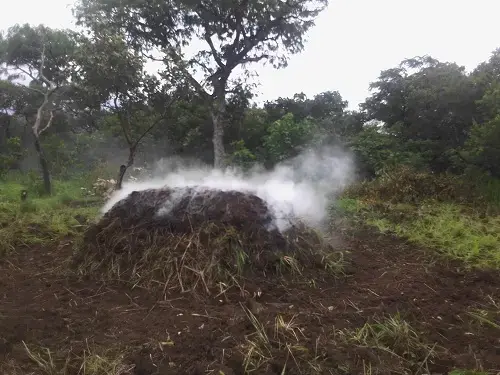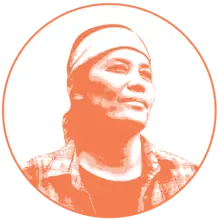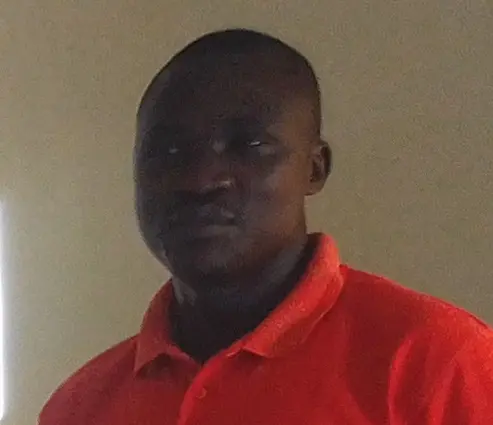
KOBOKO, Uganda—Koboko district has shut down eight charcoal markets at Busia border crossing following the Rainforest Journalism Fund-supported article on Mount Kei Forest Reserve.
“I closed all the eight big markets at Busia where they were trading charcoal. There was resistance from some technical officers that we were going to lose revenue, but we cannot get revenue at the expense of destroying the environment,” Asirafu Mambu, the district council chairman said.
He added that he has also banned cross-border transit of charcoal from South Sudan via his district, [and] that all the charcoal transit has been rerouted through Yumbe district, which incidentally passes through the Mount Kei Forest Reserve.
As a nonprofit journalism organization, we depend on your support to fund journalism covering underreported issues around the world. Donate any amount today to become a Pulitzer Center Champion and receive exclusive benefits!

The chairman said the emphasis now is on rallying people to only produce charcoal for internal consumption within the district.
He reasoned that this would be more sustainable in the meantime as the government works to scale up more sources of renewable energy.
The government, with support from the World Bank, is preparing the Uganda Energy Access Scale-Up Project (ESAP), according to the ministry of energy and mineral development.
The proposed project will support efforts to increase access to electricity for households, refugees and host communities, industrial parks, commercial enterprises and public institutions.
This, it is hoped, will spur socio-economic transformation in line with Uganda’s Vision 2040 development goal.
For the time being, Mambu appealed to his counterparts in Yumbe to follow Koboko’s lead and slap a ban on charcoal transit from South Sudan.

“Almost 90% of charcoal exiting Koboko and Yumbe comes from South Sudan. Others are from Kei Forest Reserve. That destruction is going to affect us badly, maybe for the South Sudanese they are used to harsh environment!” he asserted.
The chairman called on nongovernmental organisations involved in environmental conservation to create opportunities for cross-border collaboration and interface between the leaders so that they can speak about these issues.
On his part, Rashid Yali, the Kei sub county council chairman, pointed an accusing finger at the National Forestry Authority (NFA) for not doing enough to protect Mout Kei Forest Reserve.
“I have seen the story (RJF-supported story) but there is nothing they [NFA] are doing to protect the forest. In fact, I have called the range manager for West Nile for a meeting, but he has not yet to come,” he said.
Earlier, Milton Nyeko, the range manager for West Nile, had said that they had agreed to halt evictions of encroachers following a meeting with disgruntled community members and local leaders, including the council members of Yumbe and Koboko district as well as the Members of Parliament from those areas.
He added that they were also going to register everybody found within the forest reserve in order to establish the exact number of encroachers and embark on collaborative forest management as envisioned in Article 15 of the National Forestry and Tree Planting Act.
The NFA officers confirmed that to combat trans-boundary forest crimes, they had established a communication channel with Gen. Taban Deng Gai, one of the Vice Presidents in the South Sudan Unity government.
“Gen. Taban has given us the list of genuine dealers in forest products from South Sudan. They move with logs, charcoal and timber through Mt Kei Forest Reserve,” the Mount Kei Forest Reserve sector manager, Harunah Busobozi said.
This story was produced with support from the Rainforest Journalism Fund in partnership with the Pulitzer Center.







